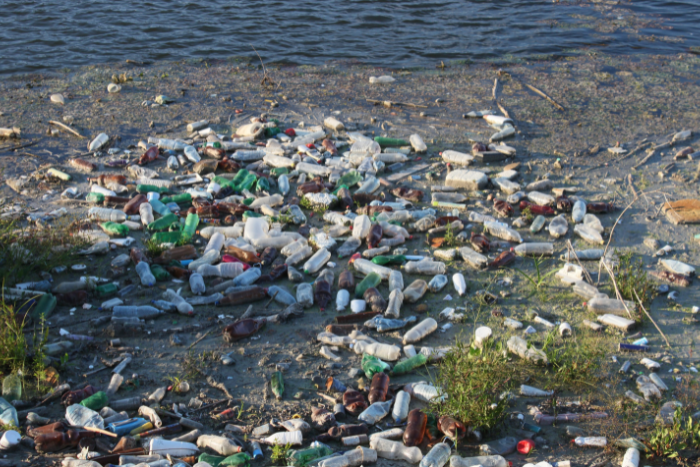The amount of plastic packaging waste created by Amazon has increased in the US, found a new report. This is a big concern for India as tonnes of this plastic from Amazon and other big companies (mostly from the US and Canada) is being imported and burnt by industries in Muzaffarnagar near New Delhi, damaging the lungs of residents. The latest report found Amazon created 208m pounds (94m kg) of plastic packaging in the US in 2022 which is a 9.8% increase in the amount of packaging it produced in 2021, according to Oceana, a US marine conservation group that used industry data and Amazon’s market announcements to form its analysis.
The increase in 2022 occurred even as Amazon cut its plastic packaging globally by 11.6% compared with a year previously. In Europe, the company has replaced its plastic delivery sleeves with paper and cardboard, amid new rules from the European Union aimed at stamping out single-use plastics.
Meanwhile, India’s National Green Tribunal (NGT) directed Uttar Pradesh Pollution Control Board to act against industrial units found violating environmental norms in Muzaffarnagar.
220 million tonnes of plastic waste will be created in 2024: EA Earth Action
Just 12 countries are responsible for 60% of the world’s mismanaged plastic waste, the top five being China, USA, India, Brazil, and Mexico. A massive 220 million tonnes of plastic waste are set to be generated in 2024, a new study has shown.
There has been a steady rise in plastic waste of nearly 10% (7.11%) since 2021. The global average plastic waste per person this year will rise to 28kg.
“Just 12 countries are responsible for 60% of the world’s mismanaged plastic waste, the top five being China, USA, India, Brazil, and Mexico,” the Plastic Overshoot Day report released on April 11, 2024 by Swiss non-profit EA Earth Action noted.
NGT slaps notices on Centre, state over concretisation at Tiger Hill in Darjeeling
National Green Tribunal (NGT) served notices to the Centre and state government departments for concretising and polluting Darjeeling’s iconic Tiger Hill, an internationally acclaimed tourism point, famous for the sunrise view in the Himalayas that attracts thousands every day.
NGT received a 96-page petition highlighting concretisation of Tiger Hill, setting up of mobile towers, construction of toilets without proper sewerage management as well as construction of large car parking lots and rest houses, thereby destroying greenery and completely changing the landscape of the area. Burning and littering of plastic waste all over Tiger Hill was also mentioned.
The NGT bench noted that the said wildlife sanctuary has several endangered plants, animal and bird species and in 2017 the place has been declared as a ‘protected area’. The green court asked the Centre and state authorities to respond within four weeks to the allegation that the environmental status of the iconic Tiger Hill has severely deteriorated owing to unplanned activities.
Ganga pollution in Varanasi: NGT fines environment officer for failing to take action against polluters
The chief environment officer of Uttar Pradesh was slapped with ₹10,000 fine for not complying with the tribunal’s order to impose fines on the polluters of river Ganga in Varanasi.
The NGT was hearing a case regarding the discharge of domestic and industrial wastewater into the river across various locations in the eastern Uttar Pradesh city, thronged by devotees and tourists.
Recently, the Municipal Corporation of Varanasi had said 100 (million litres per day) MLD of sewage water was being discharged into the river Ganga in Varanasi, which “was not fit for bathing”. The Uttar Pradesh Pollution Control Board (UPPCB) said that environmental compensation should be imposed on the defaulting body or people within four weeks, but authorities failed to take action.
US limits six ‘forever chemicals’ in drinking water
The US Environmental Protection Agency is being celebrated for introducing new limits for six PFAS compounds (per- and polyfluoroalkyl substances used to make products resistant to water, stains and heat. Also called “forever chemicals” because they do not naturally break down, and are linked to cancer, birth defects, kidney disease, decreased immunity).
But public health advocates say the new rules also address only six compounds, although about 15,000 PFAS exist, and the vast majority remain unregulated or unstudied. Meanwhile, drinking water represents only about 20% of human exposure, the EPA estimates, and diet is probably a larger problem.
The PFAS crisis is so vast and complex that the only way to address it is to regulate the chemicals as a class and strongly limit their use, the Guardian article said.
About The Author
You may also like
Air pollution levels lower than Indian norms causing deaths: Study
Air pollution second-biggest reason for deaths among young kids in South Asia: Study
Air pollution leading risk factor for death in South Asia, killed 2.6 million in 2021: Report
Haryana government to launch ₹10,000-crore project to combat air pollution
50% of new cars sold in 2023 globally were polluting SUVs, data shows


